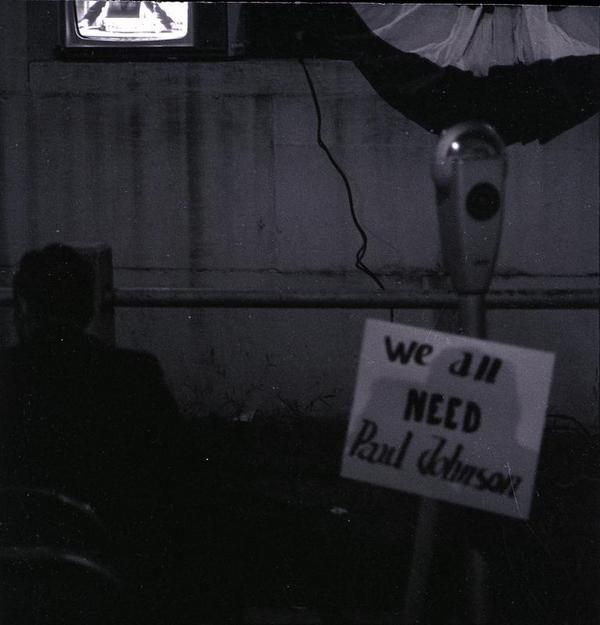item: 161
1963 Gubernatorial Election: "Stand Tall with Paul"
Item # 117-179
This photograph is identified by Moncrief as "Johnson, Paul 1964." Although not identified as such it appears to be associated with Johnson's successful bid for Mississippi Governor in 1963, which was covered extensively by the Hattiesburg American.
In the hotly contested 1963 gubernatorial race, Lieutenant Governor Paul B. Johnson Jr. made his fourth bid for governor. In August, the Democratic Primary pitted the Hattiesburg native against former governor J. P. Coleman (1956-1960), Clarksdale attorney Charles Sullivan, Robert Mason of Magee, and welder Robert F. "Blowtorch" Morgan. Johnson next faced Coleman in a "bitter" run-off, in which Johnson styled himself as a "militant anti-Kennedy segregationist," branding Coleman a "Kennedy satellite candidate." Johnson's ploy worked, and having beaten Coleman, he continued his racially charged theme against opponents Republican Rubel Phillips, a former district-three Public Service Commissioner, and Independent Ed Bishop. Johnson urged the public to "Stand tall with Paul," evoking his defiant stance against James Meredith in the September 1962 Ole Miss integration debacle. Battling for lieutenant governor were Republican Stanford Morse and Democrat Carroll Gartin, who was no stranger to the office, having held that post for two successive terms in 1951 and 1955. Describing the campaign on the eve of the election, the American commented that the "first true political brawl between a Democrat and a Republican in Mississippi's history today neared it's windup with fur flying." On November 5, Johnson and Gartin won landslide victories against their Republican opponents. Speaking at Johnson's victory party, Governor Ross Barnett focused on the main rallying cry of the campaign and recounted how he and Johnson had initially barred Meredith from entering the University of Mississippi. Barnett underscored why he supported Johnson as his successor, stating "when Johnson stood in the face of bayonets and guns…I said in my heart and mind there is a man I'm going to help." The American concluded that the voting returns showed Barnett "expressed the mood of the Mississippi voters."4
4 Hattiesburg American, August 5-7, 26-28, Nov 2-6.

return
